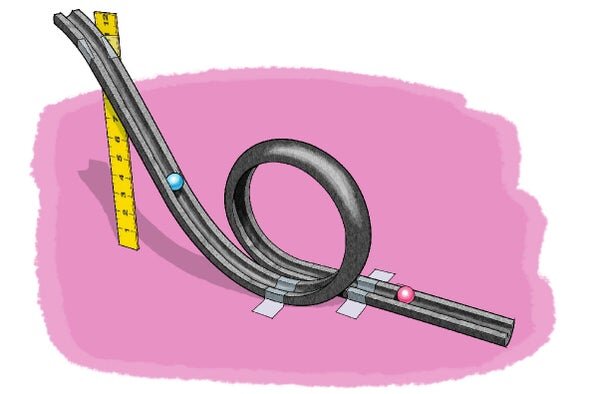With kids at home for the upcoming weeks, it can be difficult to come up with activities to keep them occupied while also focusing on their educations and life skills. Below are some ideas for activities to try with your kids while you’re home together that incorporate learning and skill building. All of these ideas incorporate items commonly found around the house so you can keep your family safe and healthy, but also entertained.
1) Math through Baking
Get kids interested in math through baking. Make some chocolate chip cookies with your kids and have them do all the measuring. Ask age-appropriate questions such as:
“If we need 2 cups of flour and 2 cups of chips how many cups total will we have?”
“If we need ¾ cups of white sugar and ¾ cup brown sugar how many total cups of sugar do we need?”
“If we have 2 cups how many quarts do we have? How many gallons?”
Continue asking questions throughout the baking process to keep kids thinking about the math as they bake. Let the kids time the cooking with an analog clock to help them add and learn to tell time.
2) Math with Allowance
Do your kids struggle with money math? When assigning chores over break, give each chore a small denomination money value. For instance, each piece of silverware washed is worth a nickel, each plate is a quarter, pans are a dollar, etc. This teaches kids to multitask, practice counting, and count add money amounts. Try it with folding laundry, picking up toys, putting groceries away, etc. Just don’t forget to write the values down!
3) Science and Engineering
Looking for a project to tackle with the kids? Have them help take the shower heads off. Let them do the wrench work to tune their motor skills. Soak the shower heads in vinegar for limescale for mold. Talk to them about how vinegar (acetic acid) reacts with lime (calcium oxide) that has built up allowing it to dissolve back into water. Or if mold is the issue, teach them that mold is a living organism that thrives in wet, dark areas, but cannot survive acid like acetic acid (vinegar).
If you have any other building or plumbing projects be sure to involve the kids! It may take a few tries but will ultimately teach them self-sufficiency while also tuning their motor skills.
4) Gardening
Spring is the perfect time of year to start a garden and being quarantined doesn’t have to mean staying inside! Ask your kids what they want to grow. Have them pick a couple of region-appropriate (no banana trees in upstate New York unfortunately!) veggies and maybe some flowers. Teach them about different herbs and what foods they go in then let them choose which herbs they want to try to grow. Start the seeds indoors and teach kids about watering, soil mixtures, and fertilizing. You can even make your own fertilizer by drying out used eggshells (calcium), coffee grounds (copper, nitrogen, potassium), and/or banana peels (potassium, nitrogen, phosphorus, magnesium). Crush them up once dry and work into the soil. (Note: research which nutrients are needed for different plants before adding fertilizer, whether it’s homemade or from the store). As plants grow, teach kids about photosynthesis and how plants “eat” and “drink” through their root network.
5) Cultural Adventures
Every few days pull out a globe or a map and randomly select a country from it. Spend time with the kids learning about the country for a few days. Talk about what grows there, what the people wear, art styles, and food. Have kids try to color a picture using colors and patterns inspired from that country. Try picking a dish from that country to either make with the kids or to order out from a local restaurant (if available). Teach kids common phrases like “Hello, how are you?” or “Nice to meet you!” in the language of the country.
6) Crafts
Kids love crafts, but they probably don’t realize that crafts help bolster their imaginations, dexterity, and other important skills. Teach kids a new craft like origami, sewing, or crochet or learn a new craft with them! If you’re feeling really ambitious, try to design a Rube Goldberg machine or stack dominoes to watch them fall. Let kids take control and offer guidance when they struggle, allowing them to gain confidence and engineering skills. For older kids and teenagers, give them a larger project like building a small trebuchet/catapult or a potato gun. Have them research and design the project then help work them through building it.
7) Egg Physics
If you have multiple kids, give them some toilet paper rolls, straws, pipe cleaners, popsicle sticks, cardboard, etc. and have them try to build a holder to drop an egg without it breaking. Give them an hour to work with no limits on supplies or further instruction and see what their imaginations create! After they finish, drop the eggs from increasing heights until they break. Talk about the physics of falling and gravity. Explain that force is equal to mass times acceleration and have them think about ways to lower the force on the egg when it drops. Have them improve on their designs or redesign entirely and repeat the competition. See what improvements they can come up with!
8) Building and Moving
Work together with the kids to create and obstacle course, either indoor or outdoors, with household items. Make sure to work in jumping, crawling, running, bending, and any other movements you can think of. Have the kids compete with each other or with a timer to make an interactive P.E. experience at home, while also having them working on their building/design skills.
9) Urban planning
Bust out some painter’s tape or masking tape and have your kids design roadways on the carpet. Use blocks or boxes or anything you have available to use as buildings. Have the kids set up grocery stores, gyms, restaurants, houses, etc. and then they can play with matchbox cars or dolls to get around. Play with them and have them think about how far the cars have to go to get food or to the highways. Create traffic jams to have them consider how to make alternate roadways more appealing.
10) Marble Roller Coaster
One of my all-time favorite science projects in school was building a roller coaster. Give your kid some foam pipe and let them design a roller coaster for a marble. Add requirements like their must be at least one loop-the-loop and the marble must stop within an inch of the end of the pipe.
What other ideas do you have? Share your ideas in the comments and let us know how all of your fun projects turn out!










